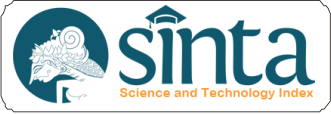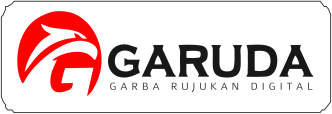Utilization of Social Media as Learning Media for Islamic Religious Education at SMK Surakarta
Abstract
Penelitian ini bertujuan untuk mengetahui pengaruh media sosial terhadap efektivitas proses pembelajaran dan pemanfaatannya sebagai alat pengajaran Pendidikan Agama Islam (PAI) di SMK Negeri 6 Surakarta. Berdasarkan data yang diperoleh melalui dokumen, wawancara, dan observasi, penelitian ini menemukan bahwa platform media sosial seperti Telegram, YouTube, Instagram, dan WhatsApp digunakan secara efektif untuk mendukung pembelajaran PAI. WhatsApp digunakan untuk komunikasi dan diskusi antara guru dan siswa, Instagram untuk materi visual, YouTube untuk video ceramah, dan Telegram untuk distribusi materi tambahan dan tugas. Sebagian besar siswa merasa lebih tertarik dan mudah memahami materi melalui media sosial, yang mendukung pembelajaran yang lebih interaktif dan fleksibel. Namun, terdapat beberapa tantangan, seperti keterbatasan akses internet dan perangkat, serta distraksi dari konten yang tidak relevan. Oleh karena itu, pengelolaan yang bijaksana dan fasilitas yang memadai sangat penting untuk memaksimalkan pemanfaatan media sosial dalam pembelajaran PAI. Secara keseluruhan, meskipun ada kendala, pemanfaatan media sosial terbukti efektif dalam meningkatkan keterlibatan siswa dan mendukung pembelajaran PAI di SMK Negeri 6 Surakarta, asalkan dilakukan dengan pengelolaan yang tepat
References
Amin, M. A., & Nurhidayah, P. (2024). Development of Islamic Cultural History Teaching Materials Assisted by Google Sites in Increasing Student Learning Interest. Journal of Reflection Education, 13(2), 263-278.
Aziz, A. (2022). Character Education Strategy in the Social Media Era. Journal of Esamratul Fikri, 16(1), 2022. https://doi.org/doi. org/10.36667/tf.v16i1.1349 Strategi
Aziz, A., & Zakir, S. (2022). Social-Cognitive Learning in Primary Schools: Implementation of Albert Bandura's Theory. Indonesian Research Journal on Education: Journal of Education Science, 2(3), 1030-1037.
Dahniar. (2024). Development of Contextual Learning Models in Hadith Subjects in Islamic Education. GUAU: Journal of Professional Education for Teachers of Islamic Religion, 1(1), 2829-9078.
Dwistia, H., Sajdah, M., Awaliah, O., & Elfina, N. (2022). Utilization of Social Media as Learning Media for Islamic Religious Education. Ar-Rusyd: Journal of Islamic Religious Education, 1(2), 81-99. https://doi.org/10.61094/arrusyd.2830-2281.33
Fadli, M. R. (2021). Understanding the design of qualitative research methods. HUMANIKA, 21(1). https://doi.org/10.21831/hum.v21i1.38075
Febrianti, I., Tuffahati, J., Rifai, A., Affandi, R. H., Pradita, S., Akmalia, R., & Siahaan, A. (2023). The Effect of Information Technology Use in Education Planning Management to Improve Education Efficiency. Academy of Education Journal, 14(2), 506-522. https://doi.org/10.47200/aoej.v14i2.1763
Hakim, M. N., & Abidin, A. A. (2024). Independent Teaching Platform: Technology Integration in Vocational Education and Teacher Development. Kharisma: Journal of Educational Administration and Management, 3(1), 68-82. https://doi.org/10.59373/kharisma.v3i1.47
Hanik, E. U., Puspitasar, D., Safitri, E., Firdaus, H. R., Pratiwi, M., & Innayah, R. N. (2022). Integration of Technological, Pedagogical, Content Knowledge (TPACK) Approach of SIKL Elementary School Teachers in Implementing Digital Era Learning. JEID: Journal of Educational Integration and Development, 2(1), 15-27. https://scholar.google.com/scholar?hl=id&as_sdt=0%2C5&q="Integration+of+TPACK+ Approaches+%28Technological%2C+Pedagogical%2C+Content+Knowledge%29+Teachers+of+SIKL+Primary+Schools+in+Implementing+Digital+Era+Learning".+Journal+of+Educational+Integration+and+Developo
Isti'ana, A. (2024). Technology Integration in Islamic Education Learning. Indonesian Research Journal on Education, 4(1), 302-310. https://doi.org/10.31004/irje.v4i1.493
Khoirudin, M. (2022). Self-Regulated Learning Techniques to Improve Students' Self-Regulated Learning Ability and Learning Independence in Covid 19 Online Learning Situation: Journal of Education, Social, and Culture, 8(3), 987. https://doi.org/10.32884/ideas.v8i3.897
Kusnadi, A. (2024). Improving Teachers' Pedagogical Competence Based on Informations and Communication Technologies. Thawalib: Journal of Islamic Education, 5(1), 209-226. https://doi.org/10.54150/thawalib.v5i1.369
Lakusa, S. A. M., Nabuasa, A., & Blegur, I. K. S. (2023). Geogebra-assisted Learning Based on Human Cognitive Structure. Griya Journal of Mathematics Education and Application, 3(4), 582-598. https://doi.org/10.29303/griya.v3i4.388
Pahleviannur, M. R., Grave, A. De, Saputra, D. N., Mardianto, D., Sinthania, N. D., Hafrida, L., Alam, M. D. S., Bano, V. O., Susanto, E. E., Mahardhan, A. J., Amruddin, Lisya, M., & Ahyar, D. B. (2023). Qualitative Research Methods. In F. Sukmawati (Ed.), Collegial supervision (March 2022). CV Publishing Group. Pradina Pustaka Group. https://doi.org/10.2307/jj.608190.4
Rahardaya, A. K., & Irwansyah, I. (2021). Literature Study on the Use of Tiktok Social Media as a Means of Digital Literacy during the Covid-19 Pandemic. Journal of Business Information Technology and Systems, 3(2), 308-319. https://doi.org/10.47233/jteksis.v3i2.248
Setyowati, E. A. (2021). The Role of Schools in Habituation of Social Care Character Values through Network Learning. Journal of Elementary School Education, 1(2), 55-61. https://doi.org/doi.org/10.56393/sistemamong.v1i2.329 This
Suryana, E., Aprina, M. P., & Harto, K. (2022). Constructivistic Theory and its Implication in Learning. JIIP - Scientific Journal of Education Science, 5(7), 2070-2080. https://doi.org/10.54371/jiip.v5i7.666
Wulandari, T., & Mudinillah, A. (2022). The Effectiveness of Using CANVA Application as Science Learning Media for MI / SD. Journal of Madrasah Ibtidaiyah Research (JURMIA), 2(1), 102-118. https://doi.org/10.32665/jurmia.v2i1.245
Yulianti, P., Riadi, A., Zahratunnisa, F., Fatimah, N. A. A., & Arrahima, A. (2024). Literature Review: The Use of Social Media as a Means of Improving Islamic Education Learning in the Young Generation. Indonesian Journal of Islamic Education, 2(1), 113-123. https://doi.org/https://dx.doi.org/ 10.31949/ijie.v2i1.10114










